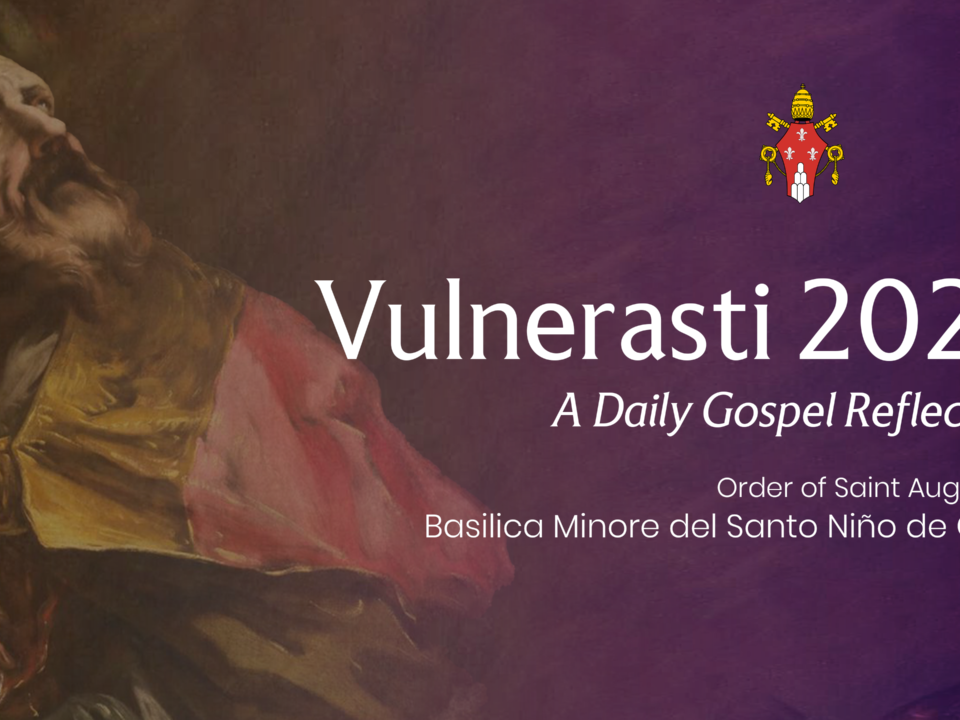Twenty-second Sunday in Ordinary Time

Today’s Reflection
Gospel: Luke 14: 1, 7-14
August 31, 2025 | Sunday
Today’s Gospel
One Sabbath Jesus had gone to eat a meal in the house of a leading Pharisee, and he was carefully watched.
Jesus then told a parable to the guests, for he had noticed how they tried to take the places of honor. And he said, “When you are invited to a wedding party, do not choose the best seat. It may happen that someone more important than you has been invited; and your host, who invited both of you, will come and say to you, ‘Please give this person your place.’ What shame is yours when you take the lowest seat!
Whenever you are invited, go rather to the lowest seat, so that your host may come and say to you, ‘Friend, you must come up higher.’ And this will be a great honor for you in the presence of all the other guests. For whoever makes himself out to be great will be humbled, and whoever humbles himself will be exalted.”
Jesus also addressed the man who had invited him, and said, “When you give a lunch or a dinner, don’t invite your friends, or your brothers and relatives, or your wealthy neighbors. For surely they will also invite you in return, and you will be repaid. When you give a feast, invite instead the poor, the crippled, the lame and the blind. Fortunate are you then, because they cannot repay you. You will be repaid at the resurrection of the upright.”
Today’s Reflection
The book of Sirach, filled with wit, aphorisms, proverbs, and heavenly and earthly wisdom, antedates Christ’s time. It was handed down to us in Greek translation through Alexandrian Jews. It’s timeless wisdom that encourages us to be humble and faithful to the Lord. It promotes “humanism” in the strict sense of the word— humanism in relation to others and with God. Pride for Sirach is a disguise or a cover-up for insecurities. A “humane” person does not live by impressions; he lives accordingly in the sight of the Lord and does not need praise from others; righteousness in itself is a delight for the Lord. We may live in righteousness and as humanely as possible. The letter to the Hebrews illustrates the greatness of the priesthood of Christ. It is a continuation of the one in the Old Testament, the priesthood of Melchizedek of Salem. It also shows that the priesthood of Christ is superior and that it fulfills the “once for all” sacrifice of the Father. The passage today presents that superiority and the reason why the people should not be afraid to approach the “new mountain” (Zion) of the Living God. People went on pilgrimages to the mountain (Jerusalem?) to worship God. Christ has given us, through His superior priesthood, access to the Father. “There will come a time that people will worship God not only on this mountain,” Jesus relates to the Samaritan woman. It is made possible by the priesthood of Christ.
The message of the two parables, the“invitation at a table,” is direct and typical of Luke’s. This is unique to Luke, for he rubs his elbows with the higher strata of society. The first parable message could be summed up in this passage: “Everyone who exalts himself will be humbled, everyone who humbles himself will be exalted,” which is a critique of self-importance and pride. On the surface, it gives the impression only of an ethical maxim to be followed (Like what we have in Proverbs 25:6- 7). However, if we see it from the lens of salvation history, it is a critique of people who have a special place in the banquet of heaven. It is not just a maxim or a precaution or a table etiquette but a whole attitude in how we approach the banquet of heaven. Our access is no longer exclusive to this or that people but was opened by Christ to all through Him. The second parable concerns the danger of wealth if not utilized for love and not for helping others. Charity and love of neighbor extend even to our enemies and those who cannot “repay” our charity or generosity. The message stamps itself.
/Vulnerasti, 2025



